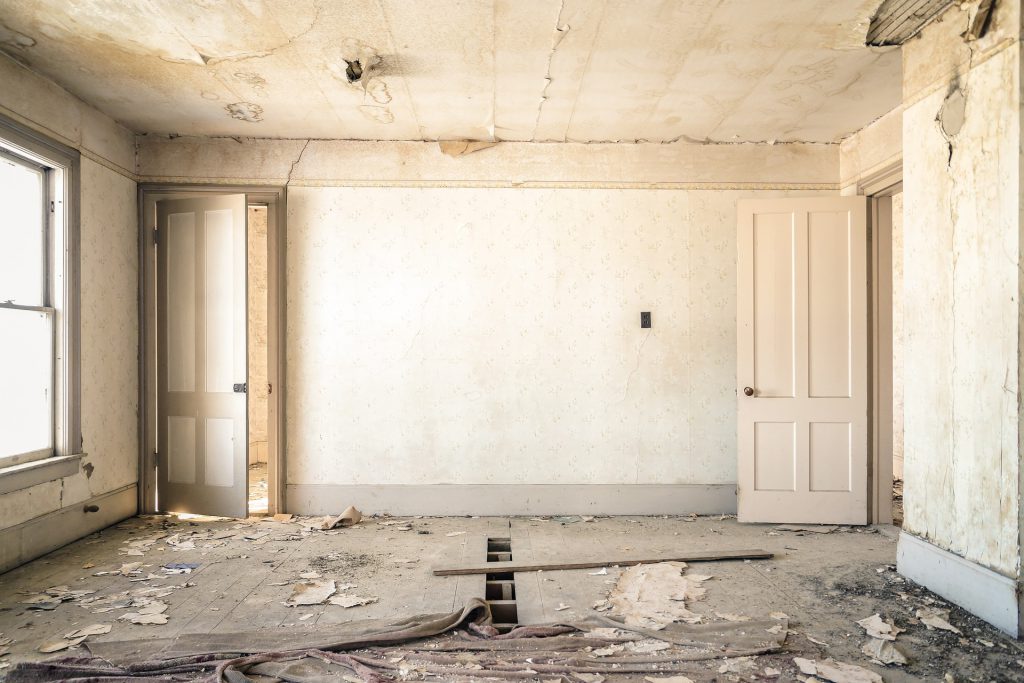Real Estate:
It is a widely known fact that humans need food, water, and shelter to survive.
As a firm believer in supply and demand, and as the population of the world increases, real estate will become increasingly harder to come by in the future. This means that the overall price of real estate will increase across the board.
If you position yourself to own real estate before an area becomes too dense, desirable, and expensive to purchase property, you will be among those profiting from their real estate holdings.
Investing in real estate doesn’t have to be a complicated process. With the right research you will be able to find an affordable property that meets your needs.
So, what are some critical things to think about to ensure you choose the RIGHT real estate?
- Location:

When choosing the location of an investment property it is always important to remember that areas that seem to be over-extended or extremely sought after are not necessarily your best options.
For example, if you look at the city of San Francisco, California, you would probably think that since this is a desirable place to live and is increasing in population year over year that it will be a profitable area to invest.
If you look at rent prices year over year, however, you may realize that they are actually taking a turn downwards.
This may signal that the real estate market in this particular area is in a bubble and that these high property valuations may not hold up for much longer.
When choosing a location to purchase property always remember to look at:
The Surrounding Neighborhood: Would you raise a family here? Are there local parks? Nicer homes? Nicer vehicles in the driveways?
If you are able to answer “Yes” to all of the above questions… This neighborhood will likely remain desirable in the future.
After all, the general rule to purchasing a new property is to “purchase the worst home in the nicest neighborhood”.
This leads me to the next key element of purchasing real estate.
- Renovation Potential:

Does this home have a desirable floor plan but is outdated on the interior or exterior? You may be in luck.
Desirable floor plans offer great renovation potential. As trends change, they still seem to favor some very particular floor plans. One very common floor plan that investors focus on is a very open and airy home.
Generally speaking, people interested in purchasing the home after you, or renting from you while you own the property will seek out open floor plans as a key element on their list of wants.
If this is the case, an open floor plan with a bright airy kitchen and living area may be the ticket to selling for a profit in the future or renting at an escalated rate.
Some quick renovations that can add a considerable amount of equity and desirability to your investment property can be the kitchen appliances, cabinets, sink, and faucets.
If you start with these items, you may be attacking the single most important piece of your home that will create a legitimate return on investment.
Kitchens have been a focal point of homes for years, and the trend of having an upgraded kitchen is not going anywhere soon.
The next most important upgrade would likely be flooring. If you manage to strip your investment property of outdated flooring and install hardwood, tile, or laminate, you may be able to quickly increase your properties value without breaking the bank.
Sometimes flooring can run as low as $1.00 per sq. ft even at big box stores. However, if you find a local flooring liquidator you may be able to swing a free install along with your purchase.
The last critical component of your real estate search should be the growth potential.
- Growth Potential:
 Is this area increasing in population at a rapid rate? Many investors purchase property in America’s fastest growing cities in order to ensure that demand will be met.
Is this area increasing in population at a rapid rate? Many investors purchase property in America’s fastest growing cities in order to ensure that demand will be met.
However, it is important to understand the demographic you would like to rent or sell to in the future.
Is this property near a college or university? Would you rent to students? What is the growth rate of this university?
Many of the California State Universities, as an example, have experienced a large influx of applications in recent years.
With new pressure on younger generations to obtain a degree, students are seeking schools that may be cheaper, yet still prestigious enough to land them a job.
If the real estate you invest in is near a rapidly growing university, you may be able to increase your rental prices as the prices of on campus living increase.
In addition, many college students seek out roommates, so paying the rent should be less of a concern.
Lastly, there will be no shortage of renters in this area as campus housing cannot support the rapid increase in the student body population.
You may be concerned about the cost of investing in real estate, and that is understandable. Down payments for investment properties aren’t always easy to obtain.
So what if you don’t have enough savings to put the down payment on an investment property?
Are there other options?
The answer is… YES!
With modern advancements and the widespread implementation of crowdfunding for new investment opportunities, real estate crowdfunding is emerging as a premier opportunity for those who are currently unable to purchase property on their own.

In addition, crowdfunding platforms like RealtyShares allow you to purchase equity in different real estate ventures including basic single family rental properties and even multi-family complexes.
You can actually start investing in Real Estate with as little as $5,000.
Why is this so important? Utilizing crowdfunding platforms like RealtyShares allows ordinary people without large amounts of free capital to invest in cities all across the nation.
This means you aren’t even required to live in the city you are investing in.
Say you do have a large amount of free cash flow to invest, yet you don’t want to take all of the risk yourself. Real estate crowdfunding platforms allow you, the primary investor, to reach out to others across the globe in order to raise the funds necessary to invest fully.
Want more details? Check out RealtyShares for more information on how the platform works and sign up today.
Disclaimer: The above references an opinion and is for information purposes only. It is not intended to be investment advice. Seek a duly licensed professional for investment advice.

My husband and I have always talked about buying investment properties and I’m really glad I came across this information because it was really helpful. We live in a nice area just outside of Houston and a lot of the houses near us were affected by Hurricane Harvey (luckily not ours). Now they’re for sale for practically nothing but they’re completely gutted from the water damage. Is this the type of home you would recommend or do you think it will be hard to make money since they flooded?
Hi Briana,
That’s tough. This is really an anomaly and although it seems like it may be presenting a good opportunity for investing I think that I would personally avoid it.
Water damage generally can lead to a lot more problems than you know. A lot of mold growth and water damage can be hidden in the walls, under floorboards, etc. Unless it is completely gutted and dried out and you can essentially see the studs in the walls it would be tough to give it any real value at this point. Sure it’s cheap initially but if you end up having to put more than it’s worth into it you will likely lose money in the long term.
If you are good with DIY and maybe can cut cost and have it properly inspected before purchasing, then maybe it wouldn’t be so bad. But without some reassurance that the structural integrity of the property is still there I can’t imagine the liability and work involved in that sort of rehab.
Good luck to you folks! I hope your community is recovering and people are able to get back to their normal lives.
-Dalton
i have been thinking of getting into investment properties but have been kind of overwhelmed with the financing side of things. I didn’t realize there were so many options to assist in the funding process until now. I will be looking into a few that you mentioned in this article.
Would you as an entry level investor recommend commercial or residential properties to invest in?
I will be keeping an eye out for your future post in relation to real estate investing and funds acquisition glad i happened across your site
Hi Garry,
Glad you stopped in. For entry level purposes I always like the idea of residential investing close to universities. Usually you can find apartments/condos near these areas and college students are willing to rent them out due to their vicinity and their ability to be rented with roommates.
My biggest suggestion would be to avoid the HOA and excessive maintenance costs. That cuts into your profit margin quite a bit. If you want to sort of bridge the gap between residential and commercial shoot for multifamily investment opportunities. There are quite a few complexes available for investment on RealtyShares which is linked in the later half of the article. Check it out and let me know what you think!
Have a good one,
Dalton
For years I have wanted to get into real estate investing but just haven’t had the means to do so. I live in Phoenix and I was right in the middle of the perfect opportunity when the market crashed, to scoop up some cheap properties. The problem is, I didn’t have the money to do it. I am a DIY guy and I think I would have been able to either turn a quick profit or get some rental income. What advice do you have for someone in my shoes? I know the opportunity is there, but just not sure how to take advantage of it. Also, do you typically recommend flipping property, or holding it as a rental?
Hi Steve,
Thanks for reading! It’s always tough to have spare cash laying around to invest when bottoms fall out. Whether it be from the market itself, the petroleum industry, the banks, housing, who knows…
Most people, myself included, don’t have enough free cash flow to just chuck at a down payment at a moments notice. It would take significant divesting in other funds in order to get everything that accessible and probably wouldn’t be worth it.
If you are a DIY guy you can likely do anything! YouTube has been a great resource through all of my remodels. As far as flipping goes it really just depends on how much your property value can increase. Maybe you can do a few small things and temporarily rent. Follow up with investing the rental profits into a full overhaul and then sell with that additional equity you now have from the renters paying the base mortgage and you then making the necessary improvements to build even more equity.
Maybe that is the best of both worlds. Personally I hold on to as much as I can for as long as I can and drive the rental prices up as property value increases. This allows me to have a larger profit margin and in the future I know I can sell for a profit if need be.
Hope that helps!
Dalton